Another year has come and gone. You know what that means, don't you? Time for a bunch of strangers to tell you what was good! And why should you care what the LitReactor staff thinks are the best books of the year? Trick question! You shouldn't. But what they have to say might interest you nonetheless, because they are good-looking and knowledgeable and they read like the wind. So for those who care, we submit for your approval/derision some of LitReactor's favorite reads of 2018 (part II). [Read part 1 HERE]
Not all of these books were published this year. We figured if someone read a book for the first time in 2018, they deserved the opportunity to crow about it.
Joshua Mohr - Instructor
![]() "The Deeper the Water the Uglier the Fish" by Katya Apekina
"The Deeper the Water the Uglier the Fish" by Katya Apekina
A hip, little book, told in engaging voice-driven prose. No other novel made me laugh as hard this year as Apekina's.
"French Exit" by Patrick DeWitt
Well, maybe this one made me laugh a little more. DeWitt bills this as a "tragedy of manners," and plus, a cat is one of the narrators—so there's that.
![]() "Men and Apparitions" by Lynne Tillman
"Men and Apparitions" by Lynne Tillman
I'm a huge Tillman fan, so when she has a new book, we celebrate around the Mohr house. For my money, she's one of our best: cerebral, filthy, and tender.
"The Mars Room" by Rachel Kushner
Kushner is such a chameleon from project to project. I admire how she as a prose-stylist "disappears" in her books, letting her characters carry the water. She's a formidable talent!
"There There" by Tommy Orange
It's hard to be thought provoking and readable at the same time, and yet Orange pulls it off. No doubt this is a page-turner/barn-burner of a book, but it's also sensitive and smart simultaneously No easy feat.
Max Booth III — Columnist
![]() "The Hunger" by Alma Katsu
"The Hunger" by Alma Katsu
A historical novel covering the Donner Party incident, with a paranormal twist. I was in love with this book before I even started it.
"The Lonely Witness" by William Boyle
The protagonist in this novel makes decisions lesser authors would be afraid of writing out on the page. Everything here is fascinating, it's difficult to look away even for a second. I also greatly appreciate the bizarre humorous third act. Boyle has my loyalty forever.
![]() "Cherry" by Nico Walker
"Cherry" by Nico Walker
A fascinating tale written by a former bank robber/heroin addict while serving time in prison. Cherry is the story of how he currently finds himself behind bars. Reminiscent of Jesus' Son. I couldn't put it down.
"The Only Harmless Great Thing" by Brooke Bolander
One of the most creative and interesting stories I've ever read. I love Bolander's prose. It's sharp as a knife and quick as a bullet. Look away and you're done for. Bolander blends together Radium Girls and Thomas Edison's Electrocuting an Elephant and creates this bizarre, alternate history guaranteed to scramble your brain.
"The Cabin at the End of the World" by Paul Tremblay
This one will probably be on a lot of people's best-of lists, and for good reason. The less said about it before you read, the better. Easily one of Tremblay's saddest books. Easily one of his most powerful. With this novel, Tremblay takes the home invasion genre and makes it his own.
Alex Segura — Instructor
![]() "The Feral Detective" by Jonathan Lethem
"The Feral Detective" by Jonathan Lethem
Lethem's a literary powerhouse, and his return to the mystery genre — his first since his stunning debut, Motherless Brooklyn — is a beauty. A timely, evocative look at the Trump-fueled hellscape we live in, The Feral Detective is thoughtful and hard to ignore.
"The Real Lolita: The Kidnapping of Sally Horner and the Novel That Scandalized the World" by Sarah Weinman
Weinman's well-researched book is part literary history, part true crime and, at least from my view, part memoir — as the author digs through the past of not only one of the world's most revered literary classics, but also manages to uncover the sad, forgotten tale of Sally Horner — the girl who helped inspire Nabokov's work on Lolita. Weinman's experiences working on the book help tighten the narrative of a story that will go down as a classic of long-form, investigative journalism.
![]() "November Road" by Lou Berney
"November Road" by Lou Berney
This book hits all my sweet spots — a con on the run, the Kennedy assassination, the American mob — in a way only Berney can accomplish. Big picture but also human and personal, November Road raises the bar for historical crime novels.
"Dead Girls" by Alice Bolin
As genre writers, we often find ourselves spending too much time thinking about the mechanics of the books we read — expecting the twist, searching for the plot reveals, that sort of thing. Every once in a while, you find a book that makes you rethink your entire body of work. Bolin's essay collection — shining a light on our society's dark and bizarre obsession with the "dead girl" trope — is that kind of book, and I'm grateful to have read it. Worth your time.
"Fear" by Bob Woodward
The title says it all. If you were intrigued but turned off by the tabloid-style mish-mash that was Fire & Fury, Fear clears the table of any hucksterism and presents a stark and terrifying look at the sheer ineptitude and malice that permeates the Trump White House, from the chilling opening chapter to the gray, gloomy closing. We don't need dark fiction anymore, because we're living in a world where the most powerful nation on the planet is run by a demented ex-reality star. Impeccably reported and clearly written in the way only Woodward can piece together.
Honorable mentions: Sunburn by Laura Lippman, Give Me Your Hand by Megan Abbott, The Infinite Blacktop by Sara Gran, Mister Miracle by Tom King and Mitch Gerads, Black Hammer by Jeff Lemire and various.
![]() Leah Rhyne — Columnist
Leah Rhyne — Columnist
Working for the second oldest circulating library in the United States and running a literary festival has been a boon for my reading life (and killer for my writing life). This past year I’ve read more books than I have in ages – whether they’ve caught my eye sitting on the check-out desk or they’re from authors who spoke at my festival and others, I’ve had so many books cross my desk, nightstand, and eyeballs, I can’t even believe it.
Here are five of my favorites:
"Circe" by Madeline Miller
Circe tells the story of a minor character in Homer’s The Odyssey, a witch named Circe who was famous for turning sailors into pigs. In Madeline Miller’s talented hands, though, this minor character becomes a major feminist beacon of hope. The writing is rich. Luxurious. And the story couldn’t be more timely…even though it’s about someone who “lived” centuries ago.
![]() "Educated" by Tara Westover
"Educated" by Tara Westover
Educated is a difficult read. It’s hard to believe her story of growing up completely disconnected from modern-day rational thought and education. But she did, and despite truly life-threatening situations, Educated is a compulsive read that introduces you to a completely different way of living, and a women who had the strength to save herself and find her way ino the light.
'I'll Be Gone in the Dark: One Woman's Obsessive Search for the Golden State Killer' by Michelle McNamara
This one gave me more nightmares than It did when I was 13 years old. It’s the true story of Michelle’s incomplete (she died before she finished the book) search for a man she dubbed the Golden State Killer. Part true crime drama, part journalistic introspection, the murders described are gruesome at best, and McNamara’s dedication to unmasking a man who committed truly heinous crimes over three decades ago is inspiring. Plus you have to read to the end to find out who the killer is.
"The Outsider" by Stephen King
This year Stephen King returned to his monstrous roots, and I loved it. Featuring my favorite character from the Mr. Mercedes trilogy as well as a slew of prototypical King tropes I find familiar and comfortable, it’s a romp through supernatural worlds that maybe isn’t It or The Stand, but was, for me, pure joy and rapture.
"The Wife's Tale" by Aida Edemariam
Talk about different ways of living and difficult reads: The Wife’s Tale by Guardian journalist Aida Edemariam is an examination of the author’s grandmother’s upbringing in early-20th Century Ethiopia. It is tough. Married when she was not much older than my own daughter, having children before the age of 15, Edemariam’s grandmother not only survived the tumultuous changes of her country, but she led much of her family to safety through the storms. It’s a survivor’s tale, yes, filled with loss and devastation, but with so much grit and bravery woven through the pages I was proud to have the opportunity to read it.
David Corbett — Instructor
![]() "Transcription" by Kate Atkinson
"Transcription" by Kate Atkinson
There are certain books that sweep you away the minute you begin reading. This is one of those. It concerns a young woman recruited into MI5 to transcribe secret tape recordings of British fascist sympathizers. Atkinson does so many difficult things well, supplying brilliantly evocative historical details in just the right place in just the right amount, doing so with incredible wit and psychological insight. I just kept turning pages, like I did as a youngster, and nothing can say more about a book than that it returned you to “the joy of your youth,” i.e., the love of reading.
"The Cruelty Men" by Emer Martin
I happened upon this book by chance, crossing paths with the author at Litquake, the San Francisco literary festival, where we were both contributors on successive panels. I was struck first by Irvine Welsh’s description of the book, “A bible of fucked-up Irishness,” and then was charmed by Emer herself. The book is an incredible journey through Celtic myth and folktales and recent Irish history (1935-1970), especially as it concerns the Catholic church’s use of “cruelty men,” a quasi-official band of borderline thugs who roamed the countryside in search of orphans or the children of families too poor to feed them. The children would be taken to “industrial schools” where they would be hideously abused in what was basically a child slavery trade. Anyone who believes theocracy might have merits would do well to read this book. But the real joy of the novel is the brilliantly drawn characters, especially the siblings at its heart, about whom I can’t stop thinking months after finishing their story.
"November Road" by Lou Berney
So many people have said such wonderful things about this excellent novel that I couldn’t hope to say anything new or revelatory. So I will resort to advice I received from one of my mentors, the novelist Oakley Hall: “Steal wisely.” Accordingly, allow me to steal this from Sean Chercover, not a bad wordsmith himself: “Ever love a book so much, after it ends you can’t get into a new book so you go back and re-read the book you just finished? Very rarely. The book I loved so much that I just read twice in a row? November Road by Lou Berney. Hell of a book.”
![]() "Dark Money" by Jane Mayer
"Dark Money" by Jane Mayer
This examination of the Koch brothers and their influence on American politics in general and the Republican Party in particular was both an eye-opener and a jaw-dropper. From their roots in the John Birch Society, which their father co-founded (he also helped build the Nazi oil industry), to their role in Citizens United and the flood of unaccountable cash in the 2010 midterms and every election thereafter, the Koch brothers have advanced a vision of America that promotes property rights above all others, denies climate change in order to maintain their personal profits from fossil fuels, and have in all other respects advanced the intransigent, hyper-partisan, compromise-is-cowardice wing of the GOP. It made me realize that Trump is not the problem; he’s merely a particularly noxious symptom of the cancer.
"Democracy in Chains" by Nancy Maclean
I loved this book at first, but have reconsidered a bit upon reading some of the more sensible critiques, in particular this one from Michael Munger, who like Maclean is a member of the Duke University history department. Maclean covers some of the same terrain as Mayer, but instead of focusing on the Koch brothers, she hones in on their intellectual godfather, James Buchanan, a libertarian economist who won the Nobel Prize in 1986 for his studies in “public choice theory.” She reveals how much of Buchanan’s thought was shaped by pro-slavery apologist John C. Calhoun, then follows the school of free market economists who followed in Buchanan’s wake, first at the University of Virginia then at George Mason University. This history segues into a scathing analysis of a libertarian strategy to enfeeble the federal government to the advantage of the states (which are easier to corrupt), and to make those changes permanent through a Constitutional Convention. She uses Chile as an example of what they hope to accomplish, and that section of the book alone is bracing. The florid title should have been a giveaway that the book, though written by a historian, might not be as rigorous as one might hope, and there have been post-publication attacks on veracity—some from people and entities Maclean attacks, but also more neutral sources. Still, as even Munger admits, it is “a remarkable book,” even if it is more “speculative history” than advertised.
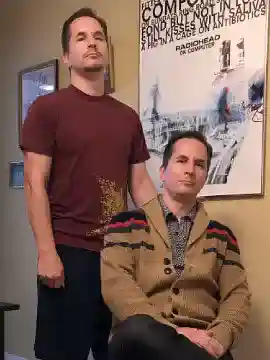
About the author
Joshua Chaplinsky is the Managing Editor of LitReactor. He is the author of The Paradox Twins (CLASH Books), the story collection Whispers in the Ear of A Dreaming Ape, and the parody Kanye West—Reanimator. His short fiction has been published by Vice, Vol. 1 Brooklyn, Thuglit, Severed Press, Perpetual Motion Machine Publishing, Broken River Books, and more. Follow him on Twitter and Instagram at @jaceycockrobin. More info at joshuachaplinsky.com and unravelingtheparadox.com.
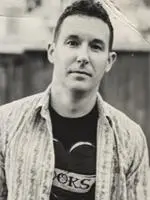 "The Deeper the Water the Uglier the Fish" by Katya Apekina
"The Deeper the Water the Uglier the Fish" by Katya Apekina
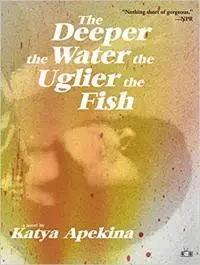 "Men and Apparitions" by Lynne Tillman
"Men and Apparitions" by Lynne Tillman
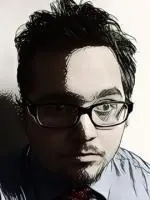 "The Hunger" by Alma Katsu
"The Hunger" by Alma Katsu
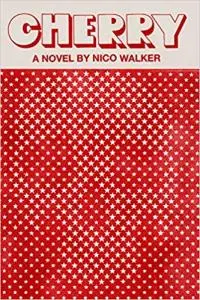 "Cherry" by Nico Walker
"Cherry" by Nico Walker
 "The Feral Detective" by Jonathan Lethem
"The Feral Detective" by Jonathan Lethem
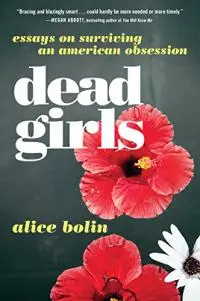 "November Road" by Lou Berney
"November Road" by Lou Berney
 Leah Rhyne — Columnist
Leah Rhyne — Columnist
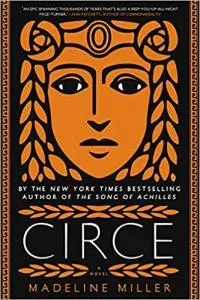 "Educated" by Tara Westover
"Educated" by Tara Westover
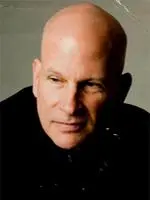 "Transcription" by Kate Atkinson
"Transcription" by Kate Atkinson
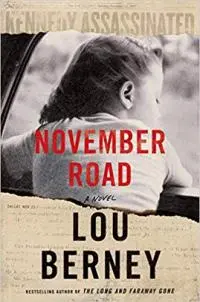 "Dark Money" by Jane Mayer
"Dark Money" by Jane Mayer








